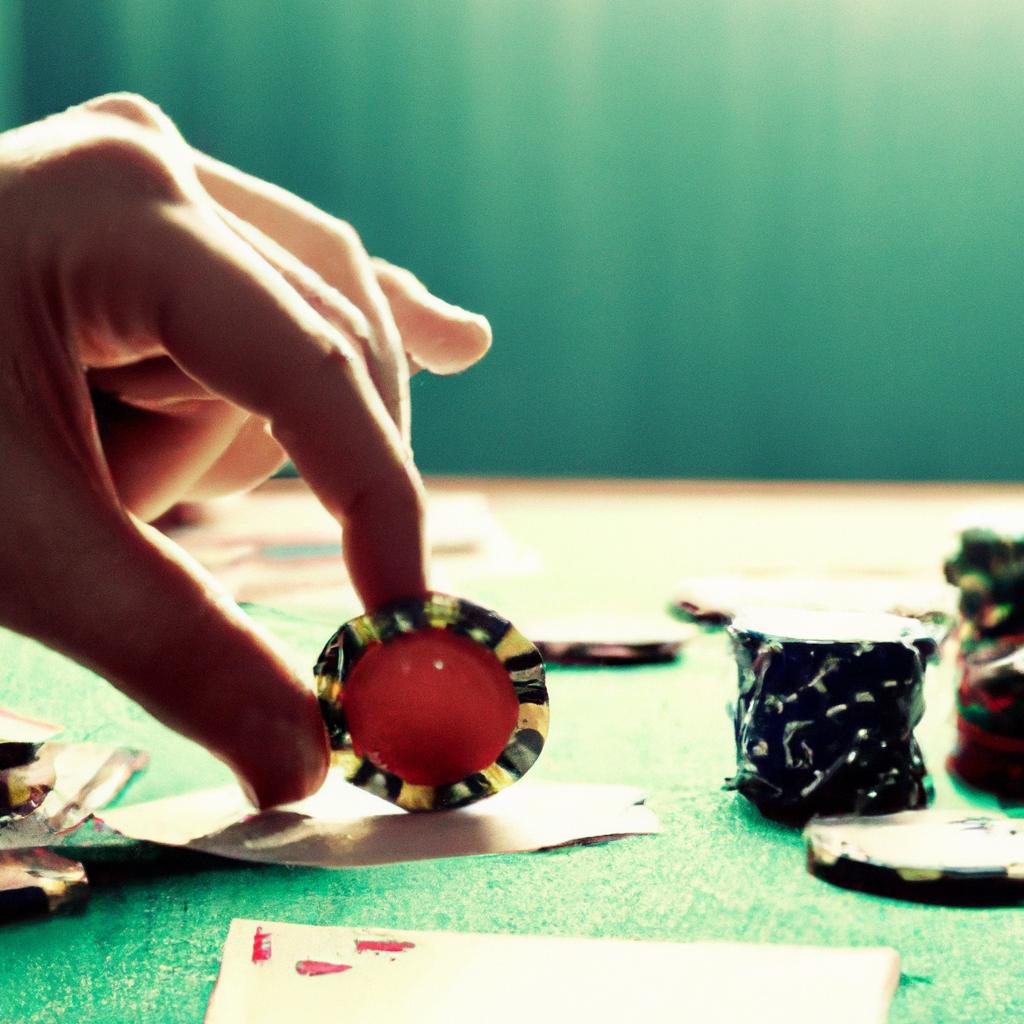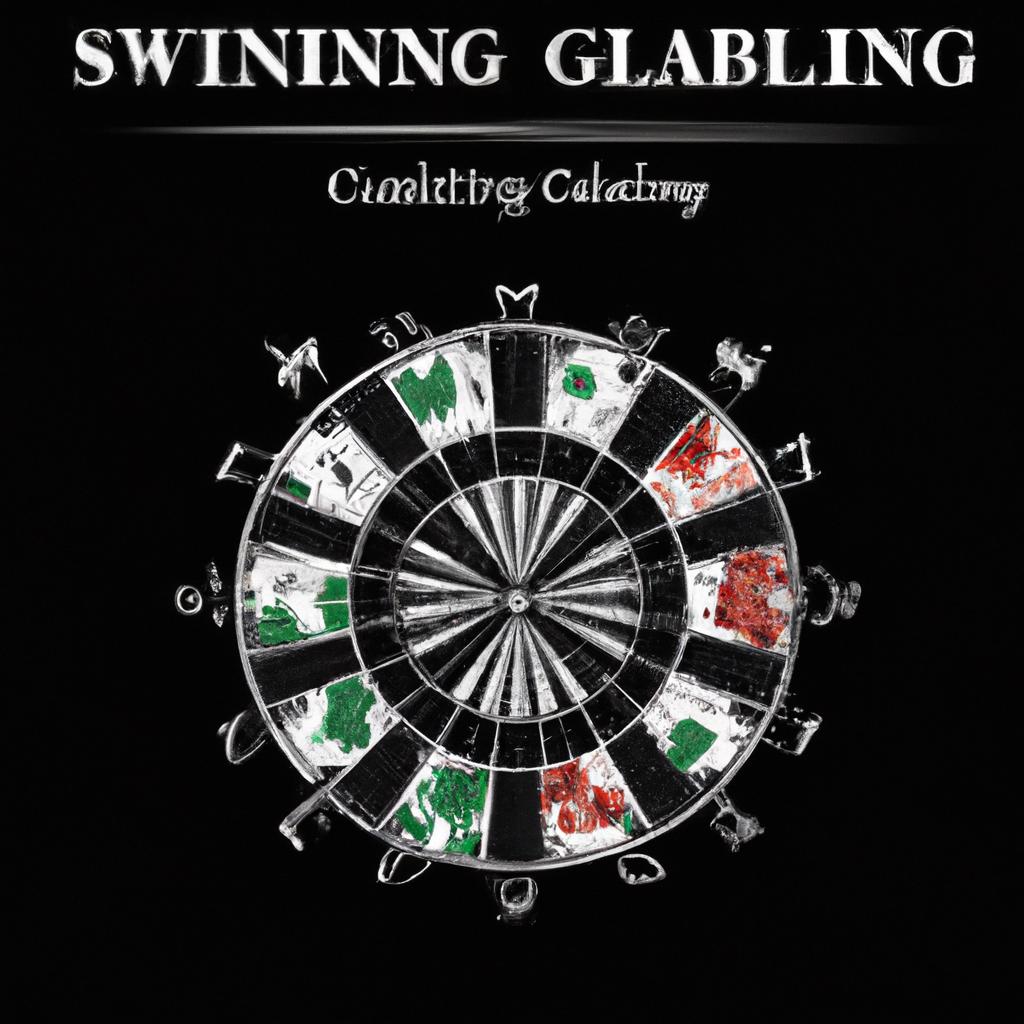In the glittering realm of chance and choice, gambling stands as a tantalizing dance between risk and reward. Each spin of the roulette wheel, each shuffled deck of cards, and each roll of the dice carries with it an intoxicating allure, drawing in thrill-seekers and casual players alike. But within this vibrant landscape of uncertainty lies the art of strategy — the deliberate interplay of skill,
psychology, and probability that can tilt the odds in one’s favor. In this article, we will explore a variety of gambling strategies, dissecting their intricacies and examining how they can enhance not only the enjoyment of the game but also the potential for success. Whether you’re a seasoned gambler or a curious newcomer, understanding these strategies may offer invaluable insights into navigating the unpredictable waters of games of chance. Join us as we delve into the multifaceted world of gambling strategies, where knowledge can transform luck into skill and elevate the experience from mere chance to calculated adventure.
Table of Contents
- Exploring the Psychology Behind Gambling Strategies
- Effective Bankroll Management Techniques for Gamblers
- Mathematical Approaches to Maximizing Winning Chances
- The Importance of Game Selection in Your Gambling Success
- Q&A
- Future Outlook

Exploring the Psychology Behind Gambling Strategies
Understanding the psychological mechanisms driving gambling strategies involves delving into the interplay between emotion, cognition, and behavior. Gamblers often develop distinct shapes of thinking that can significantly influence their choices at the betting table. These cognitive biases, such as illusion of control and confirmation bias, prompt players to perceive patterns in random outcomes, compelling them to stick to favored strategies despite statistical evidence suggesting otherwise. Additionally, the thrill of variable rewards keeps individuals engaged, making them more likely to continue using specific methods in hopes of recapturing past success.
This complex relationship between psychology and strategy also emphasizes the role of motivation. Different gamblers may employ various strategies based on underlying psychological needs and experiences, such as the desire for social connection or an escape from stress. Some common strategies influenced by these factors include:
- The Martingale System: Betting progressively more after losses.
- Positive Progression Strategies: Increasing bets after wins to capitalize on streaks.
- Low-Risk Betting: Opting for safer bets for prolonged playing time.
To illustrate how these approaches can appear in practice, consider the table below representing different strategies and their associated psychological motivations:
| Gambling Strategy | Psychological Motivation |
|---|---|
| The Martingale System | Desire for regained control |
| Positive Progression Strategies | Seeking validation and reward |
| Low-Risk Betting | Desire for security and less stress |
For more insights and further reading on how these strategies impact behavior, visit www.betreward.com.

Effective Bankroll Management Techniques for Gamblers
- Set a Budget: Before you start gambling, determine how much money you can afford to lose. This budget should be separate from your daily expenses and savings.
- Use a Unit System: Divide your bankroll into smaller units. For instance, if you have a $1,000 bankroll, consider using $50 per gaming session. This approach helps you play longer and reduces emotional decision-making.
- Track Your Bets: Maintain a detailed record of your wins and losses. This practice not only helps you analyze your performance but also identifies patterns that can improve your strategy.
Implementing these techniques can significantly alter your gambling experience. To illustrate how bankroll management plays out practically, consider the following table:
| Bankroll Amount | Unit Size | Sessions Before Depletion |
|---|---|---|
| $1,000 | $50 | 20 |
| $500 | $25 | 20 |
| $200 | $20 | 10 |
By clearly defining your bankroll limits and adhering to a structured betting plan, you can transform your gambling habits into a more responsible and enjoyable activity. Remember always to gamble with money you can afford to lose and consider seeking more advanced strategies at www.betreward.com for deeper insights.

Mathematical Approaches to Maximizing Winning Chances
One effective way to improve your odds in gambling is through the application of probability theory and expected value calculations. By assessing the likelihood of different outcomes, players can make more informed decisions. For example, when faced with a bet that offers a payout of 2:1, you can calculate the risk based on the probability of winning. Understanding these figures can help you apply limits on how much you’re willing to wager, allowing for a more sustainable approach to gaming. Key concepts to consider include:
- House Edge: The statistical advantage that the casino holds over the player.
- Variance: The measure of risk in your betting strategy.
- Bankroll Management: Techniques to ensure you do not exceed your financial limits while gambling.
Moreover, employing strategies such as the Martingale System or the Fibonacci Sequence can add structure to your gambling endeavors. These betting systems incorporate mathematical sequences to optimize wagering strategies during games of chance like roulette or blackjack. While they do not alter the odds themselves, they help in managing fluctuations in your bankroll. Below is a simple comparison of different betting strategies:
| Strategy | Risk Level | Potential Reward |
|---|---|---|
| Martingale | High | Short-term gains |
| Fibonacci | Medium | Gradual recovery |
| Flat Betting | Low | Steady play |
For those looking to delve deeper into risk assessment and advanced strategies, the use of statistical software can also provide invaluable insights. Ultimately, turning gambling into a more strategic endeavor not only enhances your enjoyment but can also lead to more sustainable gaming practices. For more resources on gambling strategies, visit www.betreward.com.

The Importance of Game Selection in Your Gambling Success
Game selection is a critical component of any successful gambling strategy. Choosing the right games aligns with your skill level, bankroll, and entertainment preference, ultimately influencing your potential returns. Understanding the dynamics of various games can lead to a more favorable gambling experience. Here are some factors to consider when selecting your games:
- House Edge: Familiarize yourself with the house edge of different games. Opting for games with a lower house edge can significantly enhance your chances of winning in the long run.
- Skill vs. Luck: Choose games that suit your strengths. If you possess strategic prowess, games like poker can yield better results compared to purely luck-based games like slots.
- Variance Levels: Understand the variance of the games you play. High variance games can lead to larger wins but come with more risk, while low variance games offer steadier, smaller payouts.
Not all games are created equal, and a well-informed selection can make a notable difference to your overall success. To further illustrate, here’s a comparison of common games you may encounter:
| Game | House Edge | Skill Level |
|---|---|---|
| Blackjack | 1% – 2% | High |
| Poker | N/A | Very High |
| Roulette | 5% – 7% | Low |
| Slots | 2% – 15% | Very Low |
By performing diligent research and choosing wisely, you set the stage for enhanced enjoyment and increased potential for winning. For further insights and strategies on gambling, visit www.betreward.com.
Q&A
Q&A on Gambling Strategies: Understanding the Odds and Your Play
Q1: What are some common gambling strategies that players use?
A1: Common gambling strategies include the Martingale system, where players double their bet after each loss to recover losses; the Fibonacci sequence, which involves following the famous numerical pattern for betting; and the Paroli system, which focuses on increasing bets when winning. Each strategy has its proponents, but it’s important to remember that no strategy guarantees a win—understanding how they work is crucial before diving in.
Q2: How can a player determine which gambling strategy might work best for them?
A2: Choosing the right gambling strategy depends on a player’s risk tolerance, bankroll size, and the game being played. A risk-averse player might prefer low-risk strategies, like sticking to even-money bets in games like roulette. Alternatively, adventurous players might experiment with higher-risk strategies, like the Martingale. Evaluating one’s playing style and preferences can help tailor an approach that feels comfortable.
Q3: Is it important to set a budget when using a gambling strategy?
A3: Absolutely! Setting a budget is critical to managing your bankroll and ensuring that gambling remains a fun pastime rather than a financial burden. Effective strategies often require discipline. Establishing win/loss limits and adhering to them is essential, even when using a structured betting system. Remember, the strategy you choose should enhance your gaming experience, not detract from it.
Q4: Can gambling strategies be applied across different games?
A4: While some strategies can be adapted for various games, the effectiveness can differ widely depending on the game’s mechanics. For instance, the Martingale system might be more suitable for games with even-money bets, like blackjack or roulette. However, in games like poker, the strategy leans more on skill and player psychology than rigid betting systems. Always consider the specific rules and odds of the game before applying a strategy.
Q5: What should players keep in mind about the house edge when using strategies?
A5: The house edge is an integral aspect of any gambling game, representing the casino’s built-in advantage. No gambling strategy can alter the fundamental odds of a game. While certain strategies might navigate short-term losses or wins, they cannot eliminate the house edge in the long run. Players should play with this understanding to manage expectations and enjoy the thrill of the game while safeguarding their bankroll.
Q6: Are there any circumstances where a gambling strategy could lead to significant losses?
A6: Yes, there are certainly risks involved with any gambling strategy. For example, using the Martingale system can lead to devastating losses if you encounter a long losing streak, as bet sizes can escalate exponentially. Moreover, many casinos impose table limits, which can prevent a player from doubling down indefinitely. Players should approach any strategy with caution and be prepared for the possibility of significant losses.
Q7: How can a player remain responsible while employing gambling strategies?
A7: The key to responsible gambling lies in moderation and awareness. Players should remember to set strict limits on time and money spent, only gamble with what they can afford to lose, and avoid using gambling as a means of financial recovery. Regularly reevaluating their strategies and being mindful of their emotional state while playing can also help maintain a healthy relationship with gambling.
Q8: is there a “perfect” gambling strategy?
A8: There is no one-size-fits-all or “perfect” gambling strategy. Every strategy has its strengths and weaknesses, and success often hinges on individual preferences, experiences, and the specific circumstances of each gambling experience. The most critical factor is to play for enjoyment, knowing that both wins and losses are part of the journey. Strive to learn, adapt, and remain engaged for the fun of the game!
Future Outlook
As we draw the curtains on our exploration of gambling strategies, it’s essential to recognize that the allure of the game lies not just in the potential for wealth, but in the rich tapestry of risk, chance, and human psychology. The strategies we’ve uncovered serve as tools—some rooted in luck and others in mathematical precision—that can guide players toward more informed decisions at the tables. Yet, no strategy can guarantee victory; the unpredictability of chance remains a constant companion in the world of gambling.
Ultimately, the best approach is to embrace the game with an open mind, armed with knowledge and a sense of responsibility. Whether you’re betting on the roll of dice, the spin of a wheel, or the flip of a card, remember that gambling is meant to be an enjoyable experience. Set your limits, play wisely, and know when to walk away. In this delicate dance between chance and strategy, may the odds be ever in your favor, leaving you with stories to tell and memories to cherish, regardless of the outcome.